Free Joker 2017 webcast: Java 9, Concurrency, GC, Spring and, of course, puzzle players

The circle is closed. Exactly a year ago, we conducted an open broadcast Joker 2016 for all those who did not have the opportunity to register. Since then, we have spent more than a dozen broadcasts from conferences on .NET, JavaScript, DevOps, mobile technologies, testing, and Java, of course.
What was better for the year? We worked out the technology, fixed a couple of vulnerabilities, began to broadcast via YouTube (and not through the custom interface), learned to ask questions from the broadcast participants, banned a hundred trolls, learned to conduct interviews in the intervals without delay and delay, began to broadcast in 1440r ... probably there is something else.
')
Actually, very soon you will be able to see what happened with us - on November 3 at 9:30 in the morning we will begin a two-day free broadcast of the main track Joker 2017 . The broadcast will go with one break "to sleep." And it will be in the resolution of 1440r, so that for once you need your cool monitors.
The program included reports from Cay Horstmann, Aleksey Shipilev, Baruch jbaruch Sadogursky, Tagir lany Valeev, Nikolay xpinjection Alimenkov, Evgeny EvgenyBorisov Borisov, Sergey Milfgard Abdulmanov and some other people.
Interesting? Let's go under cat.
Please note that links to different broadcast days are different, so save both or add this post to your favorites so you don’t lose.
Day One, November 3
 Java 9: the good parts (not modules)
Java 9: the good parts (not modules) Cay Horstmann, San Jose State University
The opening keyout will be devoted to what we all have been waiting for - Java 9. It’s already with us, we’ve already felt it, but the question is, did you try all the goodies? The report provides an overview of all the good things in the new Java (I did not translate the list, because in English, I think everything looks much clearer): collection literals (almost), an Elvis operator, new sightings of streams and completable futures, the interactive shell, the processes, the optionals, the streams, and the long-awaited BigInteger.TWO.
In general, must see if you want to use the nine to the fullest.
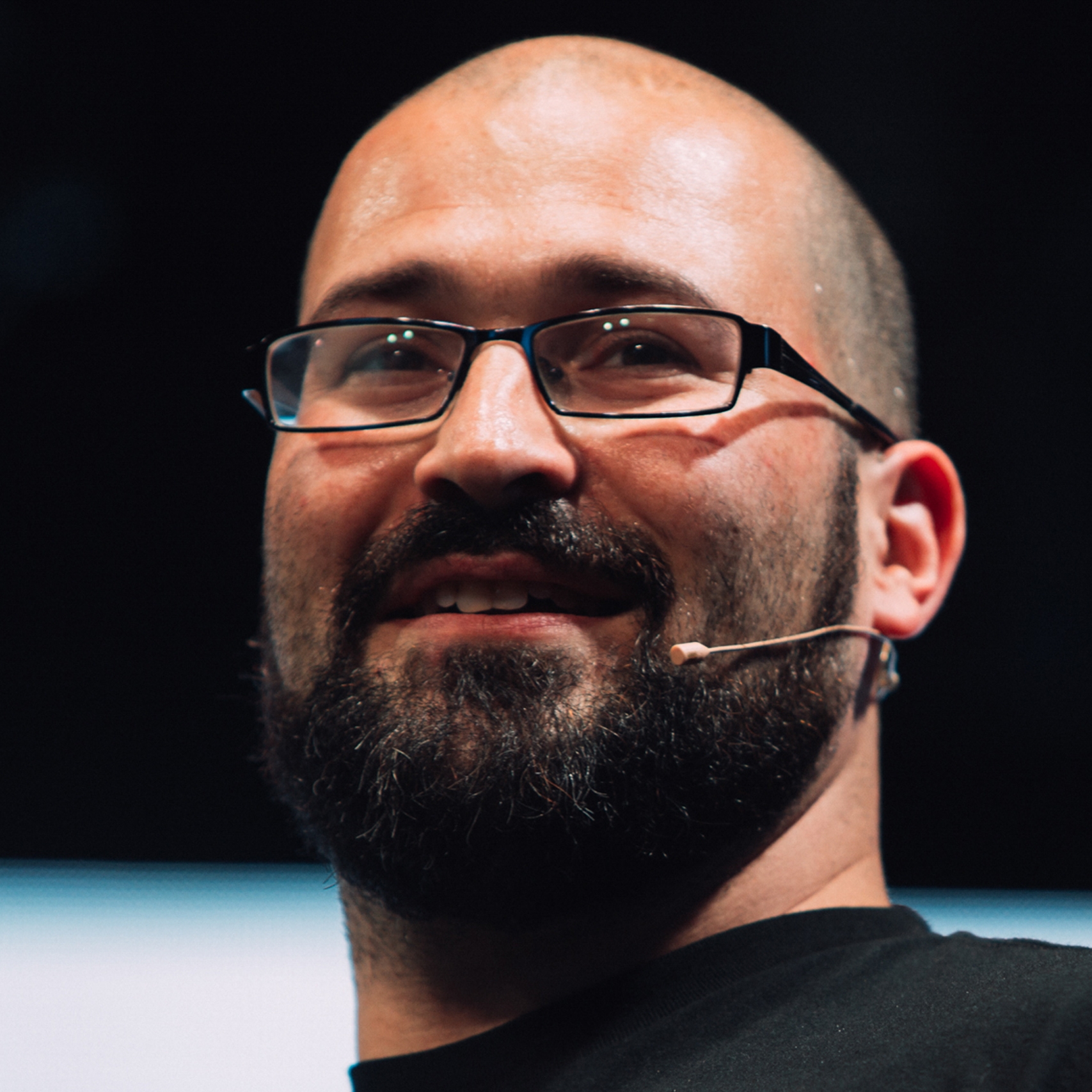
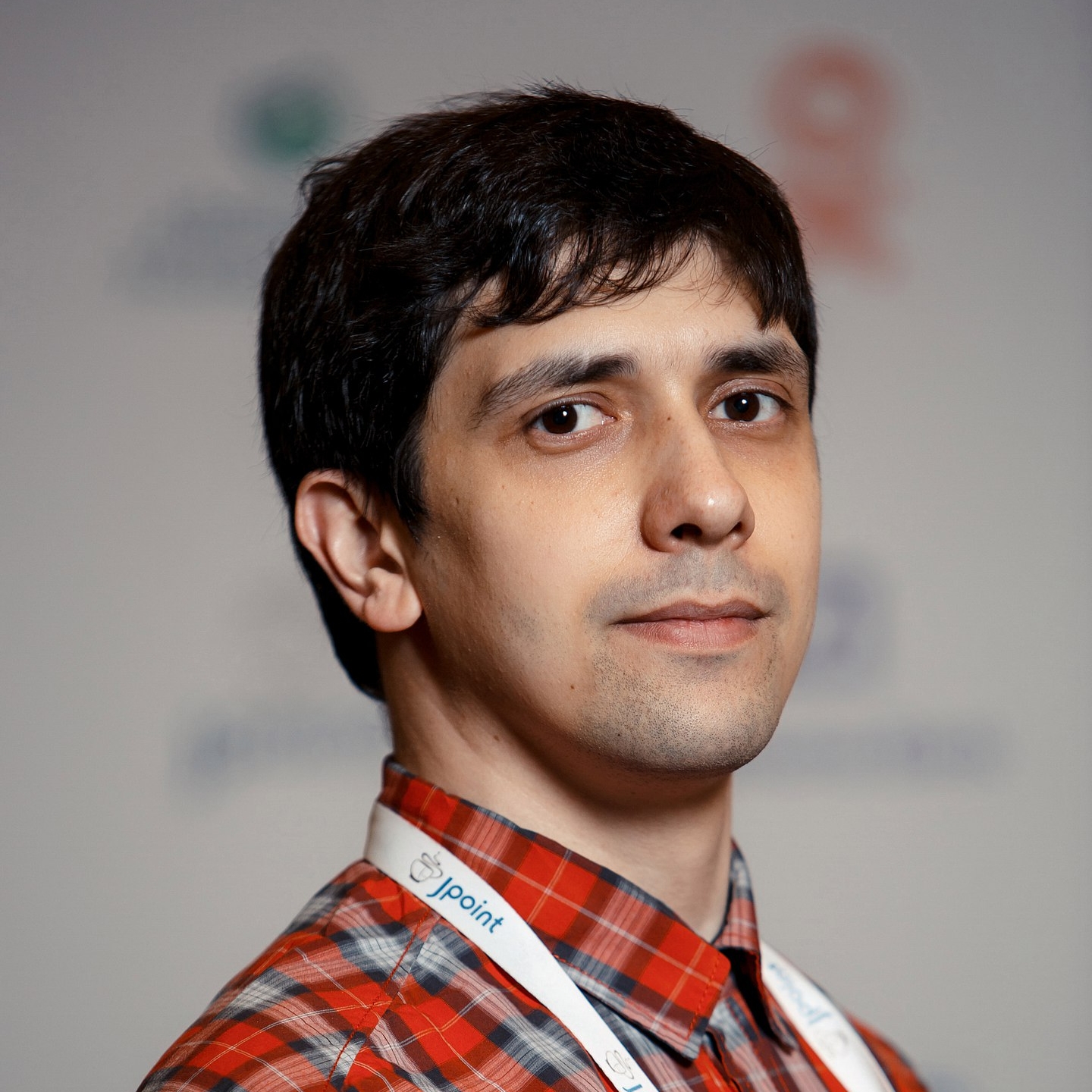 Java Puzzlers NG S03 - Where are you all climbing something ?!
Java Puzzlers NG S03 - Where are you all climbing something ?! Tagir Valeev, JetBrains; Baruch Sadogursky, JFrog
The title of this report speaks for itself: a new portion of puzzlers! Just as you like: Tagir and Baruch, hellish puzzles from Java 8 and even Java 9, funny gifs, as well as T-shirts from JFrog flying to the gym! Pleasant with helpful again with you!
If you don’t know what it looks like, see past versions: here’s a great example .
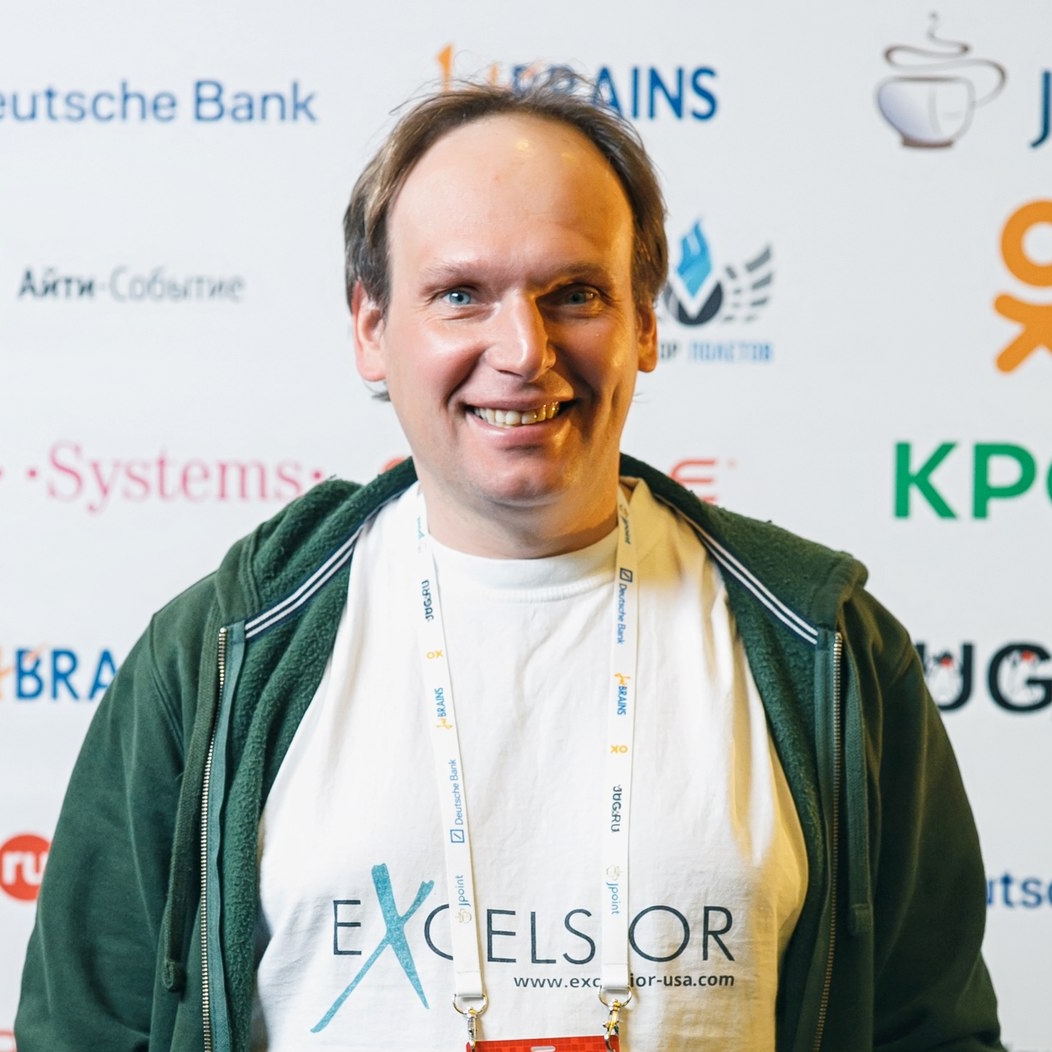 Java 9 modules. Why not OSGi?
Java 9 modules. Why not OSGi? Nikita pjBooms Lipsky, Excelsior LLC
One of the best reports of the Novosibirsk JBreak 2017, supplemented and improved, about what will not be in keynote: about modules. Someone cares a little, scares someone, someone genuinely wonders: why, because we have OSGi for more than 15 years, which solves exactly the same problems?
In this report, we will try to figure out what problems OSGi is trying to solve, how it does it and whether it actually does. Then we will figure out which problems OSGi is trying to solve, Jigsaw does not solve at all and why, and which problems it solves and how. Well, at the end we'll talk about what problems Jigsaw brings to the Java ecosystem, and what to do about it.
 Concurrency for humans
Concurrency for humans Cay Horstmann, San Jose State University
There are exactly two topics on our Java conferences that collect 100% full halls: concarrency and performance (forgive my “French”). So this report will be about the first.
The problem is that all of our favorite Java books tell us that concurrency is threads, synchronized methods, wait and notify. It’s only when you write a competitive code, it’s better to think in terms of tasks, not streams: think about thread-safe data structures, parallel streams, and use them correctly. It is also good to learn asynchronous data processing. In general, in this report, Kay will show all the tools of the standard Java library for implementing the basic parallelization patterns without locks and conditions.
 Shenandoah: a garbage collector that could (part 2)
Shenandoah: a garbage collector that could (part 2) Alexey Shipilev, Red Hat
Attention! In order to fully understand all that Alexey will talk about in the report, we strongly recommend that you look at the first part of “Shenandoah: a garbage collector that could” .
Continuing the history of the garbage collector from Red Hat. This report dives into the rabbit hole of the problems that a low-level GC like Shenandoah has to face, reflects on what can be done with these problems at the JVM level, as well as on what prudent developers of low-level Java systems can do, knowing about these rakes.
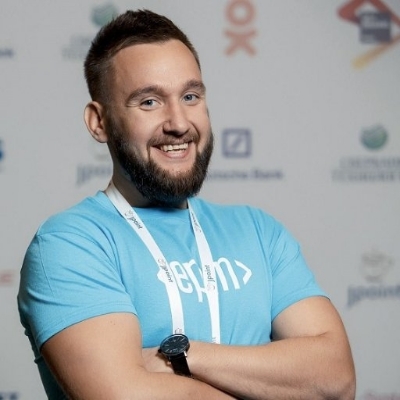 Java 8: Good, Bad, Angry
Java 8: Good, Bad, Angry Nikolai xpinjection Alimenkov, XP Injection
In the morning we started the day with news about Java 9, the only question is, did we have enough knowledge of Java 8? She has been with us for several years, and during this time most of the projects have switched to using the eight, including starting to use new language features.
Actively participating in the code review, in recent years, Nikolay has seen enough common anti-patterns in the application of new Java 8. In this report, incorrect and inefficient techniques for working with Optional, Stream and lambdas, as well as correct ways to solve initial problems will be demonstrated with practical examples .
After this report, all participants and speakers of Joker 2017 will go to a party (if you also want, you can still register ) to tweak “for life” over a glass of foam (or red, if you like) with residents and Rizbor guests, speakers conferences and colleagues.
Day Two, November 4

 Boot yourself, Spring is coming
Boot yourself, Spring is coming Cyril tolkkv Tolkachev, Alpha Laboratory; Evgeny Borisov, Naya Technologies
They say magicians do not reveal their secrets. It's good that not magicians work in Pivotal! Therefore, when the magic "box" Spring Boot does not start, you can always understand what's what. You can google, look at the solution options on StackOverflow (you just have to find the right topic among the 26,919 requests spring-boot started), and you can take care of your time in advance and see how Cyril and Eugene publicly gutted Spring Boot for two hours.
You understand the basic principles and conventions by which typical Spring Boot applications work. The report is designed in such a way that all the magic from the cylinder turns to a much more transparent process for the audience. Then you can not only have fun when everything works, but also understand the essence of the problems that arise, solving them without the help of an ambulance.
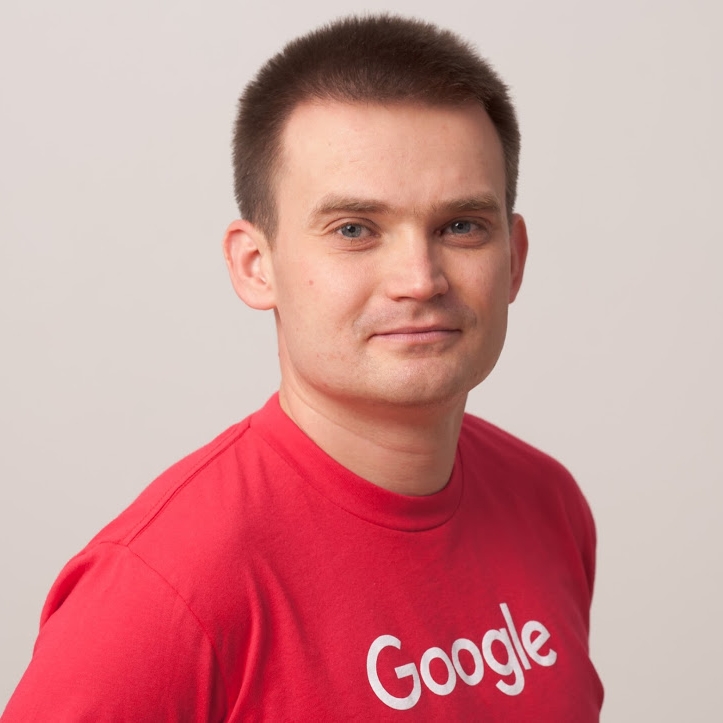 We adopt Google experience in building microservices with gRPC
We adopt Google experience in building microservices with gRPC Alexander Borisov, Google
Microservice architecture is not free, it significantly increases the number of remote calls. This leads to new challenges and problems in network interaction, so choosing the right framework for remote procedure call (RPC) becomes critical.
gRPC is a new generation of RPC-framework from Google, designed to improve performance and address the complexity of network interaction when writing distributed systems.
Alexander will show how gRPC helps to build a reactive microservice architecture, sort out some of the difficulties that can be encountered when writing distributed systems, and show how gRPC helps to solve them.
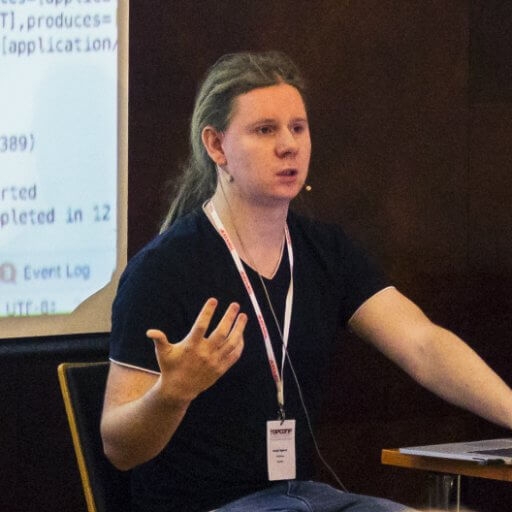 TestContainers - integration testing with Docker
TestContainers - integration testing with Docker Sergey Egorov, Uvita
Unit tests are good. Here only the majority of modern microservices work with external I / O (databases, MQ, other services). How to be how to test?
“H2” - you will proudly say! Well, well, but in production, for example, PostgreSQL with JSONB. What's up with JSONB in H2?
The report will tell you about the TestContainers library, which allows you to quickly and cross-platform to run Docker-containers from your JUnit (and not only) tests with popular databases, Selenium browsers and in general everything that can run in Docker. With the ability to run both locally during development and on CI servers without changes.
 Amber project: news from the fields
Amber project: news from the fields Tagir Valeev, JetBrains
On the first day of Joker 2017, we will talk about Java 8 and Java 9, but on the second day, we will talk about what awaits us in the future. The Amber project combines various experimental innovations that may fall into Java 10 or future versions. This includes the output types of local variables, pattern matching (pattern matching) and much more. In the report, we will look at what has already been implemented at the moment, what problems arise for the authors, how you can play around with yourself and offer your own brilliant ideas.
Knowing the love with which Tagir prepares his reports, I personally recommend everyone to set aside an hour for this report, even if you do not plan to watch the entire broadcast.
 As we expanded the bottleneck of development
As we expanded the bottleneck of development Sergey Abdulmanov, Mosigra
A report from the legend of Habr, a man with four-digit karma, experience in creating his own IT-company and managing one of the country's largest network of board game stores.
History: they made 10 projects of board games a year, it became possible to load the production and do an order of magnitude more. The problem was in the development process: it was necessary to expand the core team no more than doubled. As a result, about 80 projects were completed. About what rake came the guys from Mosigra, how they razbili these rakes and what came out of it - in the report of Sergei.
By the way, quite recently we discussed with Sergey the nuances of the development of a desktop in a habrainterview .
Broadcast in the breaks
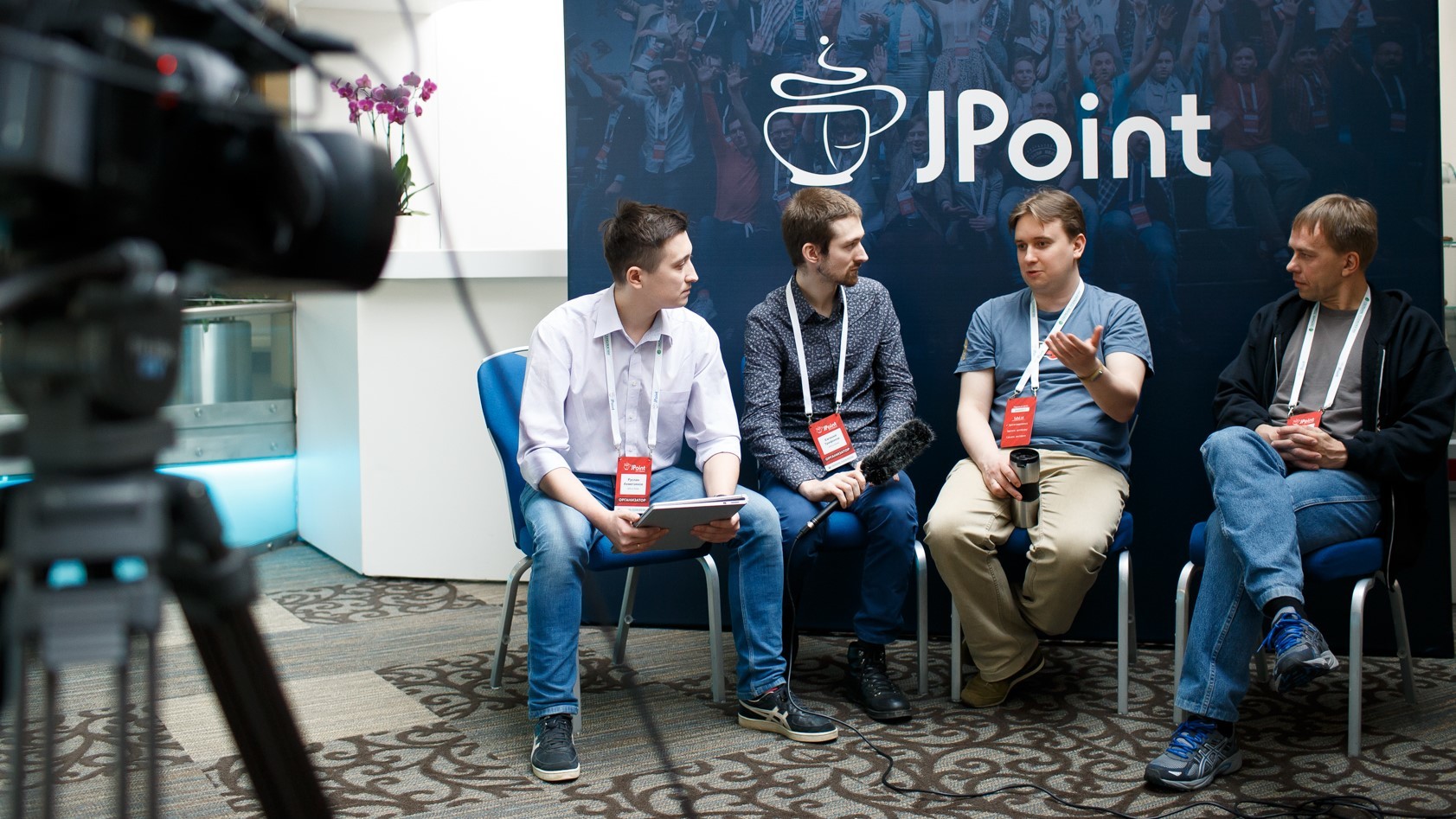
The problem of many online broadcasts - empty breaks and coffee breaks. While the participants at the conference are drinking coffee and talking to the speakers, viewers of the broadcast are forced to look at the stubs and wait for the next report to begin.
We solved this problem in our own way - in the breaks interviews with speakers and sponsors of the conference will be broadcast. The interview will be olegchir (you must have read his articles about Java or DevOps) along with the phillennium - you will not be bored.
I would like to draw your attention to the fact that due to the interview you will be able to get acquainted with those speakers and guests who will not be on the program: Anton antonarhipov Arkhipov, Nitsan Wakart, Andrey apangin Pangin or Leonid Igolnik - this, of course, is not a complete list, connect as they say!
Questions, both during the interview and during the reports, can be asked via the conference's Telegram chat .
Restrictions
- The broadcast is provided on the principle of as is : we are sure that everything will be fine, but if suddenly that - do not judge too much!
- There will be no video recordings. That is, they, of course, will, but only for conference participants who have left feedback. And for all the others, we traditionally post them in 3-4 months.
- You can not see what happens in other halls. And there will be many interesting things . The next time you get a ticket and see everything without restrictions.
Source: https://habr.com/ru/post/341330/
All Articles